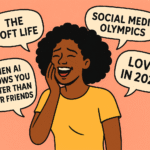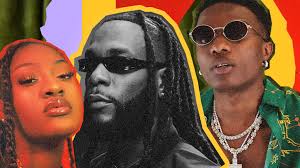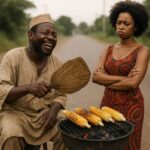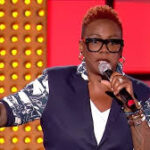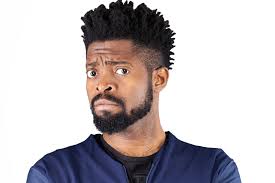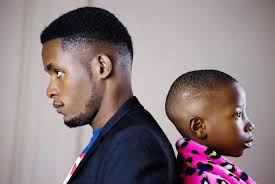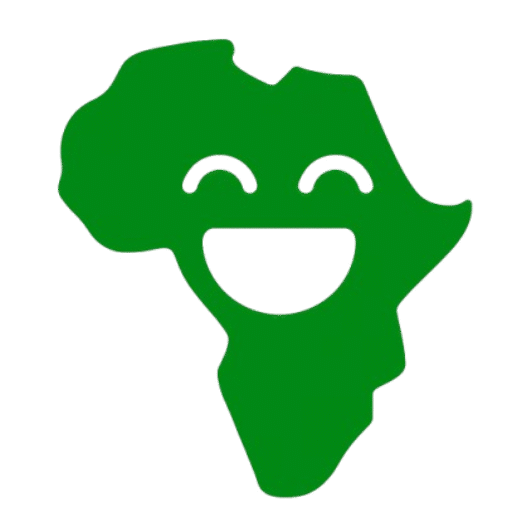Afrobeats and comedy have become two of the most influential forces in shaping modern African pop culture. These two cultural movements are not just entertainment industries; they represent the dynamic expression of African identity, creativity, and resilience. From the vibrant rhythms of Afrobeats to the sharp wit of African comedians, both have played a pivotal role in challenging traditional norms, influencing global trends, and offering fresh perspectives on societal issues. In this article, we explore how these two genres are reshaping modern African pop culture, pushing boundaries, and fostering a sense of unity across the continent.
- 1. Afrobeats: A Global Musical Revolution
- 2. Comedy: A Reflection of African Identity and Resilience
- 3. The Symbiotic Relationship Between Afrobeats and Comedy
- 4. Social Media: The Platform for Global Reach
- 5. Afrobeats and Comedy as Tools for Social Change
- 6. The Future of Afrobeats and Comedy in Shaping African Pop Culture
- The Cultural Impact of Afrobeats and Comedy
1. Afrobeats: A Global Musical Revolution
Afrobeats, the genre of music that blends traditional African sounds with elements of hip-hop, dancehall, and highlife, has emerged as a global phenomenon. Artists like Wizkid, Burna Boy, Davido, and Tiwa Savage have taken African music to international heights, breaking into markets in Europe, North America, and beyond. The infectious rhythms and catchy beats have not only made Afrobeats a dominant genre on global charts but also transformed how people view African culture.
Afrobeats has become a cultural bridge, allowing the rest of the world to engage with African rhythms, languages, and storytelling. The genre’s rapid rise is a direct result of the way it blends traditional African music with modern sounds, creating a unique fusion that appeals to both African audiences and global listeners. This cross-cultural exchange has led to Afrobeats’ growing influence on fashion, dance, and even language.
In pop culture, Afrobeats’ impact is undeniable. Its influence has extended beyond music, shaping trends in fashion, beauty, and lifestyle. Dance moves popularized by Afrobeats songs have gone viral, from the Zanku and Shaku Shaku to the Gwara Gwara, pushing African dance styles into mainstream global recognition. The music videos, often filled with vibrant colors and high-energy performances, also reflect African fashion and aesthetics, influencing the broader fashion industry and inspiring global designers.
2. Comedy: A Reflection of African Identity and Resilience
Much like Afrobeats, comedy in Africa has seen an explosion in both popularity and reach. From the stand-up performances of Basketmouth and Ali Baba to the viral skits of Mark Angel Comedy and Emmanuella, African comedians are using humor to reflect on societal issues, challenge power structures, and unite communities. African comedy is known for its storytelling approach, observational humor, and ability to tackle complex issues with wit and satire.
Comedy in Africa serves as both a mirror and a weapon. It reflects the realities of daily life, from the struggles of the working class to the absurdities of politics. African comedians often use humor to address serious topics, such as corruption, inequality, and gender dynamics, all while making audiences laugh and think critically about societal issues.
What makes African comedy unique is its ability to blend traditional African values with modern humor. Comedians often draw from African proverbs, folk tales, and indigenous languages, infusing their comedy with a sense of cultural pride and authenticity. This has helped shape a new generation of African comedians who are not only entertaining but also providing a platform for the expression of African identity and resilience.
3. The Symbiotic Relationship Between Afrobeats and Comedy
Afrobeats and comedy are interlinked, with each genre complementing and reinforcing the other in shaping African pop culture. The relationship between music and comedy is not new—comedians have often used music in their routines, while musicians incorporate humor into their performances and videos. However, in the context of modern African culture, these two forms of entertainment have become even more intertwined.
Many Afrobeats artists incorporate humor into their music videos and live performances. For instance, Davido’s music videos often feature comedic skits and playful interactions, while Olamide blends humor with catchy hooks and streetwise lyrics. This fusion of comedy and music resonates with young African audiences, who see these performances as a reflection of their own lives—full of joy, laughter, and struggles.
Comedians, too, often reference Afrobeats in their routines. Many African comedy shows feature performances by popular musicians, and comedians use Afrobeats songs to highlight the humor in everyday life. The collaboration between comedians and musicians has resulted in viral content, where both music and humor come together to create something more significant than the sum of their parts.
For example, Mr. Macaroni, a Nigerian comedian known for his viral skits, often incorporates popular Afrobeats songs into his videos, using them as a backdrop for his comedic narratives. This integration allows both the music and the comedy to gain more exposure, fostering a mutually beneficial relationship.
4. Social Media: The Platform for Global Reach
Both Afrobeats and comedy have flourished on social media platforms like Instagram, YouTube, and TikTok. These platforms allow African artists and comedians to reach global audiences in real-time, breaking the barriers that once limited the distribution of African culture.
The viral nature of social media has been instrumental in the global success of Afrobeats. Songs like “Essence” by Wizkid featuring Tems and “Anybody” by Burna Boy gained international recognition through their widespread use on TikTok, creating dance challenges and viral trends. Similarly, African comedians like Emmanuella, Mark Angel, and Funnybone have built massive online followings by creating content that resonates with both African and international audiences.
The rise of digital media has allowed African comedy and Afrobeats to transcend geographical boundaries. These two genres are not only entertaining but also serve as vehicles for African storytelling and cultural export, further shaping African pop culture globally.
5. Afrobeats and Comedy as Tools for Social Change
Both Afrobeats and comedy are powerful tools for social change in Africa. Through their music and humor, both genres challenge societal norms, highlight political and social issues, and encourage positive change.
Afrobeats songs often carry messages of hope, unity, and social consciousness. Burna Boy’s “Ye” and Wizkid’s “Fever” are examples of songs that not only entertain but also convey deeper messages about freedom, resistance, and self-empowerment. The music calls for African pride and global recognition, encouraging the youth to embrace their identity and demand change in their societies.
Similarly, African comedians use humor to tackle sensitive issues such as corruption, gender inequality, and racial discrimination. Through their wit and humor, they expose the flaws in the system and encourage viewers to reflect on their roles in society. Comedy, thus, becomes a tool for social critique, opening up conversations about social justice and human rights in a way that is accessible to everyone.
6. The Future of Afrobeats and Comedy in Shaping African Pop Culture
As Afrobeats and comedy continue to grow in global popularity, their role in shaping African pop culture is only going to increase. Both genres have become symbols of African excellence, creativity, and resilience, with their influence extending across the globe.
The future looks bright for both Afrobeats and African comedy, as they continue to inspire new generations of artists and comedians. With the continued support of digital platforms and global audiences, these forms of entertainment will continue to evolve and serve as ambassadors of African culture worldwide.
The Cultural Impact of Afrobeats and Comedy
Afrobeats and comedy have undeniably become the heartbeat of modern African pop culture. These two genres continue to break boundaries, shape social narratives, and create a sense of unity and pride among Africans both at home and in the diaspora. They reflect the diverse nature of African society and the collective ambition for a better future. Whether through the rhythms of Afrobeats or the laughter generated by comedians, these cultural movements are helping Africa tell its story on the global stage.






